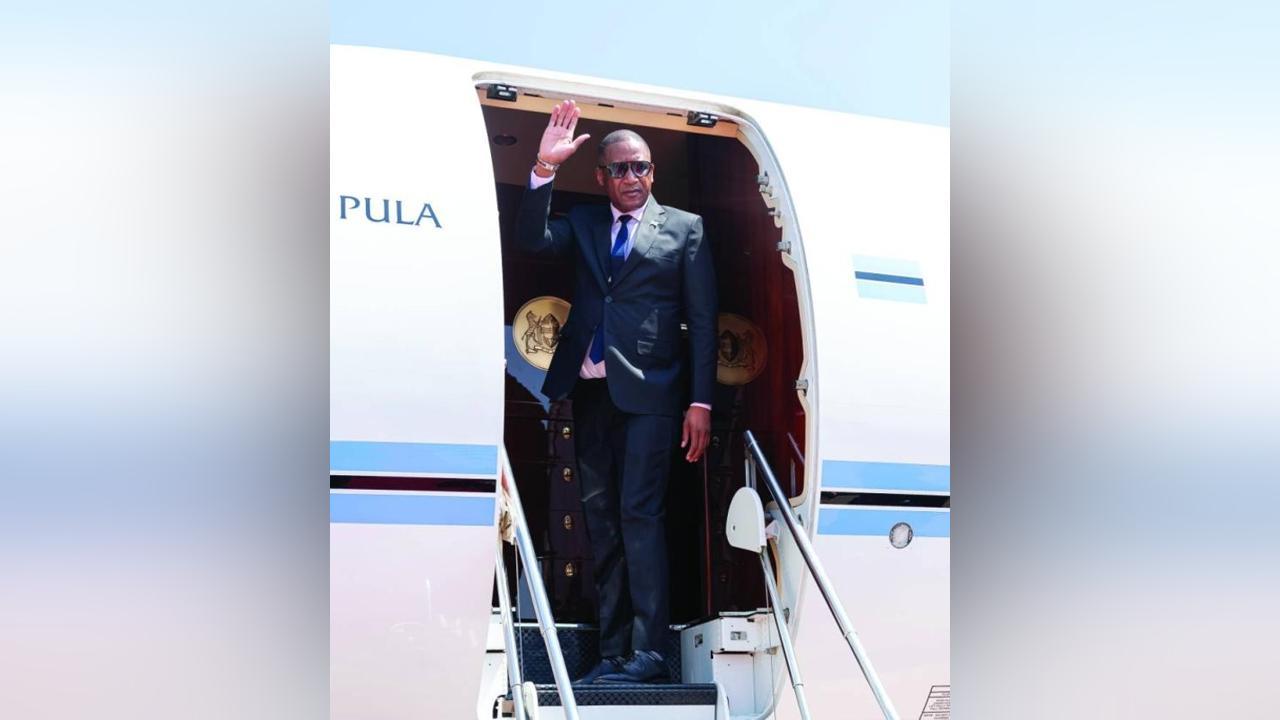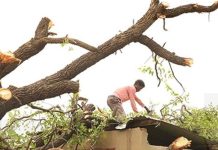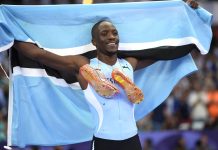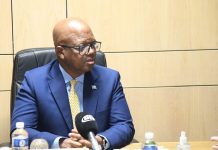Africa-Press – Botswana. In his first 100 days as Botswana’s head of State, President Duma Boko has made seven trips outside the country, and has been visited by two heads of State and government. The diplomatic trips oscillated between peace interventions meetings, economic and political diplomacy mainly because of an unclear diplomatic stance the country wobbles in writes TIMOTHY LEWANIKA.
While there has been some suggestions online that Boko will be an “on the air President” his first seven State visits are not out of the ordinary and their nature due for presidential attention. Presidents are strategic actors who carefully allocate their scarce resources. They need to travel abroad to engage in face-to-face diplomacy, but they must also be present and active in national politics. Some travels, such as summits of world leaders, are all but mandatory for presidents while other occasions, are at the discretion of the President.
Bokos first diplomatic engagement with a head of State in his capacity as the First Citizen was with President Emmerson Mnangagwa. Since then the duo has met officially three times, first at Victoria Falls for the world chilldren’s Day commemoration followed by two Southern African Development Countries (SADC) engagements.
Mnangagwa has surely made it his mission to keep Botswana as a close ally in the region, following his close relationship with former president Mokgweetsi Masisi. The relationship with Zimbabwe has however, in the past rattled a few feathers locally, from quarters worried about immigration challenges that may ensue if Botswana gets closer and closer to Zimbabwe.
This was particularly reiterated by nationals from the northern part of the country who claim that the influx of Zimbabweans is the reason behind illegal mining and crime in areas such as Block 1 Francistown. Boko would later share his plans in an interview with BBC that he wants undocumented Zimbabweans to be legalised by granting them temporary work and residence permits.
“They do jobs that would otherwise not get done,” Duma Boko told the BBC Africa Daily.
BBC reports that Botswana hosts the world’s second-largest community of Zimbabweans fleeing their country’s economic woes – and they are often resented, with deportations taking place regularly.
The decision is not likely to be popular in the diamond-rich southern African nation, but Boko, who unseated the ruling party that was in power for 58 years, said it was part of his plans to revive the economy.
Boko also travelled to Belgium for the renowned diamond conference FACETS, where he acted as an economic diplomat for the country rallying markets to get behind natural diamonds. His remarks mainly centered on restoring the faith of markets on rough diamonds following a prolonged period of plummeting diamond sales resulting from weak demand and competition from synthetics.
Minister of Minerals and Energy, Bogolo Kenewendo would later reiterate the importance of this travel by stating that it was necessary to show up to markets as a united front with De Beers to restore investor confidence in the sector.
“The visits generated market confidence. Don’t feel threatened by the news you have seen, particularly the slashing of prices by de Beers… The President has given some fresh instructions to ensure we are getting the most out of this deal,” she said.
She also spoke about the importance of G7 to Botswana.
“G7 constitutes 70% of our market, so it’s very important that we focus on protecting our market and ensuring that that there is no disruption on the sale of our diamonds,” Kenewendo said.
The President also visited Ghana for the inauguration of the newly elected President John Dramani Mahama. The obvious reason for attending was that Boko as a new president needs to meet his peers and forge a relationship with his own friends in the international scene. This is important so as to solicit support for Botswanas agenda.
One would quickly remember that when Pelonomi Venson-Moitoi lost the African Union chair seat, Mugabe then pinned it on the poor diplomatic engagement of former president Ian khama.
“The poor lady couldn’t do what Madam Zuma had done. We worked hard. They worked hard, sweated. They sweated, you sweated, we sweated. One man did not sweat. He stayed at home and expected wonders would happen. They didn’t happen,” he said.
“Everybody just said, ‘you, we have not seen your President here. He doesn’t attend our meetings and what would happen if we placed our organisation in your hands, in his hands. So sorry lady, we won’t give you the votes. She worked hard. She was very sorry to lose. We were also very sorry because we knew in advance that we were trying an impossible one,” Mugabe said
Bokos latest trip was to Tanzania for the energy summit which underpins the Umbrella for Democratic Change (UDC) desire to diversify the economy from the brown economy to the green economy. He has also engaged with President Cyril Ramaphosa of South Africa, the President of Singapore, the President of Guinea and Prime Minister of Lesotho to name a few.
The extent to which a president participates in the international sphere is largely dependent upon which tools and strategies granted or constrained by the diplomacy policy agenda. Botswana for one does not have a writtern diplomacy policy agenda but has survived all this year on a verbal code of non-alignment in international relations.
Past presidents have acted based on the pressures of the political agenda that they face in the international scene. To create a foreign policy and overall “national interest” amidst the various competing global priorities, presidents must contend with the cost of aligment, governmental institutions, interest groups, and public attention.
For More News And Analysis About Botswana Follow Africa-Press






